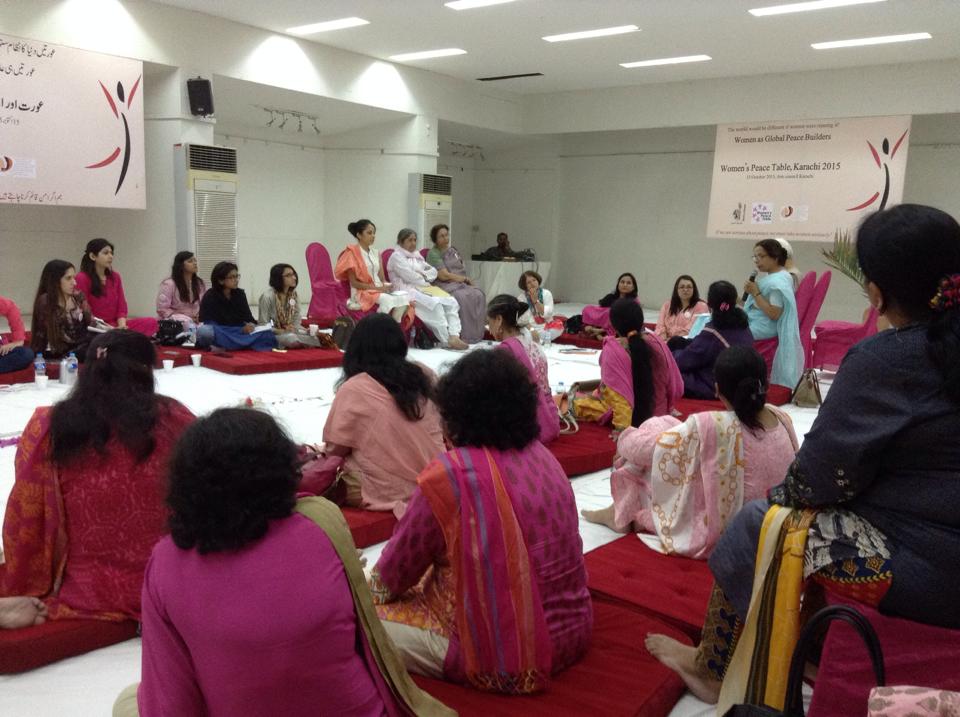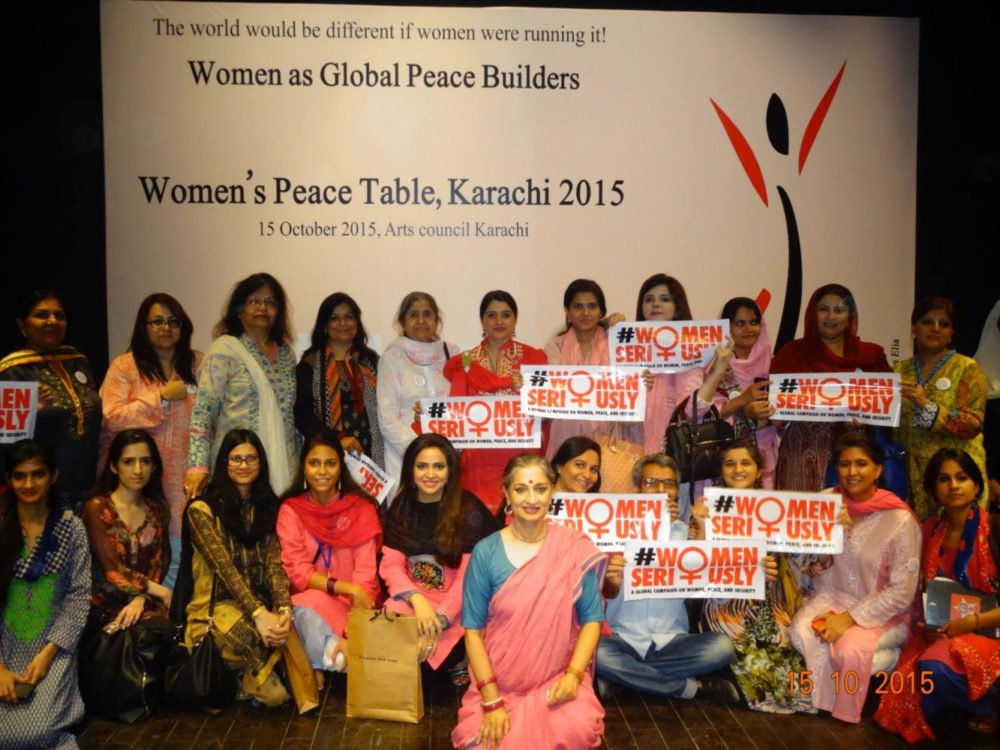Karachi Women’s Table Talks
By Deneb Sumbul | Movies | Published 8 years ago
On October 15, about 85 women, dressed in pink for peace, arrived at Karachi’s Arts Council for the ‘Women Peace Table Karachi 2015’ hosted by Tehrik-e-Niswan. The first half of the day was a participatory session to allow attendees to interact and discuss women’s representation in various spheres and forums. This event hosted by Sheema Kirmani was part of a global campaign of ‘PeaceWomen Across the Globe’ under the auspices of ‘Women Seriously’ whose website quotes, “If you are serious about peace, you have to take women seriously.”
On that day, a similar event was taking place in 20 other countries. The premise behind this campaign is that women by nature have a different way of relating to issues and conflict than men, and are under-represented in peace-and policy-making decisions that affect their lives. Despite being half of humanity, women’s own perspective and leadership is missing in issues faced by them and these are not even discussed when such matters come up, despite countless examples of them being equally capable of determining, presiding and governing.

The Women’s Peace Tables organised around the world are meant to symbolise and represent women’s perspective and leadership in peace negotiations, public policy and in decision-making roles. Their collective and consolidated voice is aimed to jump-start a movement to shape a Women’s Global Peace Agenda. The format of the conference in Karachi was informal yet intense, with the first half exclusively for women – engaging both young and veterans alike in discussions and analyses of women’s status and representation in Pakistan in the context of violence, education, economy and in politics, public policy and decision-making.
Zubeida Mustafa and Baela Raza Jamil spoke in detail of the current education crisis, not just for girls, but for boys as well. They cited various reports, including that of Alif Ailaan’s, an NGO, which states that about 25 million children are either not in school or have left their education. They also provided facts and figures and pointed out various causes of the nationwide education disparity between the genders. Zubeida Mustafa gave the example of three countries where women played important roles as peace negotiators in long-term conflicts: Columbia, Burundi and the Philippines. She related how their efforts bore fruit in establishing peace.

Nuzhat Shirin spoke on the subject of women’s economic empowerment. She dilated on the various cultural and official blockages that stymie this at every step. She gave examples of women working in the informal sector; namely home-based women workers who are not recognised as part of the labour force by the Bureau of Statics. She pointed out how difficulties in mobility factor into employment opportunities, particularly for female domestic and factory workers.
Dr Habiba Hasan gave an overview of gender-based violence in Pakistan and said that in 2011, the Thomson Reuters Foundation had found Pakistan the third most violent country for women. She gave the three main causes for this: Pakistan’s ethos of being a male-dominated society; laws like the Hudood Ordinance and cultural practices like karo-kari, and the fact that the state regards a woman’s testimony equivalent to half of a man’s. All forms of violence currently prevalent were discussed, ranging from selling women into bondage, sexual harassment and women being forced to bear children numerous times. She said even judges showed an anti-woman bias. As a result she and Justice Nasir had begun training judges and the police in gender sensitisation. From 2016, this course will be also be part of the LLB students’ curriculum.
Other speakers discussed the dismal representation of women in politics and even less representation in decision-making roles. They discussed how even those women who were elected usually owed their success to their male family members who were in politics. They had very little power in their own right.
The session was made even more interesting with poetry recitations and readings, including one by Zahida Hina; songs, a skit and a play called ‘Raisa Ka Ramzan.’ Tributes were also paid to Kainat Sumroo, Ansu Kohli and Humaira Bachal for their struggles.
This article was published in the Newsline’s November 2015 issue.
The writer is working with the Newsline as Assistant Editor, she is a documentary filmmaker and activist.
No more posts to load


